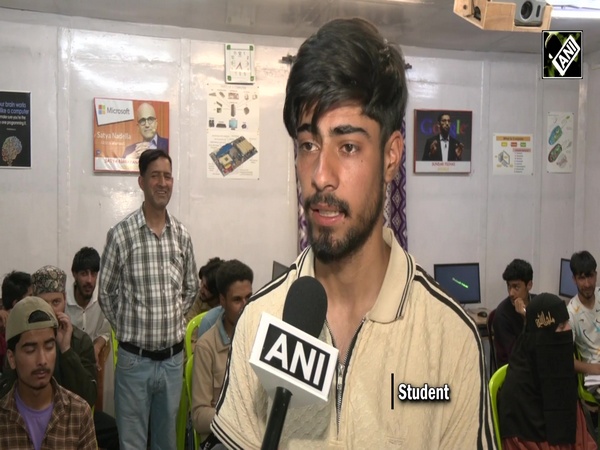Revised guidelines for CUET undergraduate, postgraduate programs soon: UGC Chairman Jagadesh Kumar
Dec 09, 2024

New Delhi (India), December 9 : The University Grants Commission will soon release a draft proposal detailing the revised guidelines for conducting Common University Entrance Test for Under-Graduate (CUET-UG) and Post-Graduate (CUET-PG) programs 2025, inviting feedback and suggestions from students, parents, teachers, and institutions.
Chairman of the UGC, M Jagadesh Kumar said that an expert committee was constituted to review the conduct of CUET-UG and CUET-PG exams for 2025.
The committee has examined various aspects of the test, such as its structure, number of papers, duration of test papers, syllabus alignment, and operational logistics and considered these recommendations in its meeting held on November 13 this year.
Based on this the UGC, , a regulatory body for universities and colleges, is planning to announce some major changes in the CUET for undergraduate and post graduate programs to improve its efficacy and efficiency for the 2025 academic year.
CUET, which was implemented to standardise the admissions process among institutions, has developed an open, technologically advanced system that guarantees equal chances for candidates with different educational backgrounds.
The Common University Entrance Test was introduced in the year 2022 as a step toward standardizing the admission process for undergraduate (UG) and postgraduate (PG) programmes across universities. CUET has provided a level playing field for students from diverse educational boards and socio-economic backgrounds, ensuring equal opportunity for all aspirants. Last year, 283 universities adopted CUET, and the number of registered candidates was 13,47,820.
By encouraging the Universities to adopt a single, national-level entrance test, CUET has streamlined admissions, reduced the reliance on varying cut-offs, and made the admission process transparent and technology-driven.
Based on feedback from past years, it is essential to continuously improve the examination process to provide a better, more efficient and conducive environment for students taking CUET, the UGC chairman said.
On December 5, the UGC introduced draft regulations and invited public feedback. Some of the major reforms in the draft regulations included biannual admissions, the provision of multiple entry and exit, eligibility for admission in any discipline of the UG or PG program regardless of the disciplines taken in class 12, and the requirement for a student to earn a minimum of 50 per cent of total credits in a discipline to obtain an undergraduate degree with a major in that discipline.
The commission has asked people to share their feedback on the draft regulations on or before December 23 this year.
Meanwhile, the UGC chairman said that guidelines on the Recognition of Prior Learning that was approved by the commission in its last meeting and will soon make it public for feedback.
"We must address the challenges faced by India's large informal workforce, which requires formal education and career progression opportunities," the UGC Chairman said.
Recognition of Prior Learning (RPL) is integral to the vision of The National Education Policy (NEP) 2020. RPL allows individuals to gain formal recognition for skills and competencies acquired through informal, non-formal, or experiential learning. Through RPL, such individuals can access higher education, earn formal qualifications, and improve their employability.
The National Credit Framework (NCrF) supports RPL by facilitating the creditization of all learning forms--academic, vocational, and experiential.
To enable individuals to convert their skills into qualifications, RPL helps bridge the gap between real-world experience and formal education and enhance career prospects.
RPL contributes to economic growth, social inclusion, and a more skilled workforce.
In its meeting on November 14 this year, the UGC approved the draft guidelines for implementing RPL by specifying several mechanisms.
"The guidelines also emphasize robust governance, quality assurance, and collaboration among policymakers, educational institutions, employers, and assessment bodies to ensure fairness, consistency, and inclusivity while implementing RPL. This UGC's initiative aligns with NEP 2020's goal of promoting a holistic and equitable education system," Jagadesh Kumar said.
















